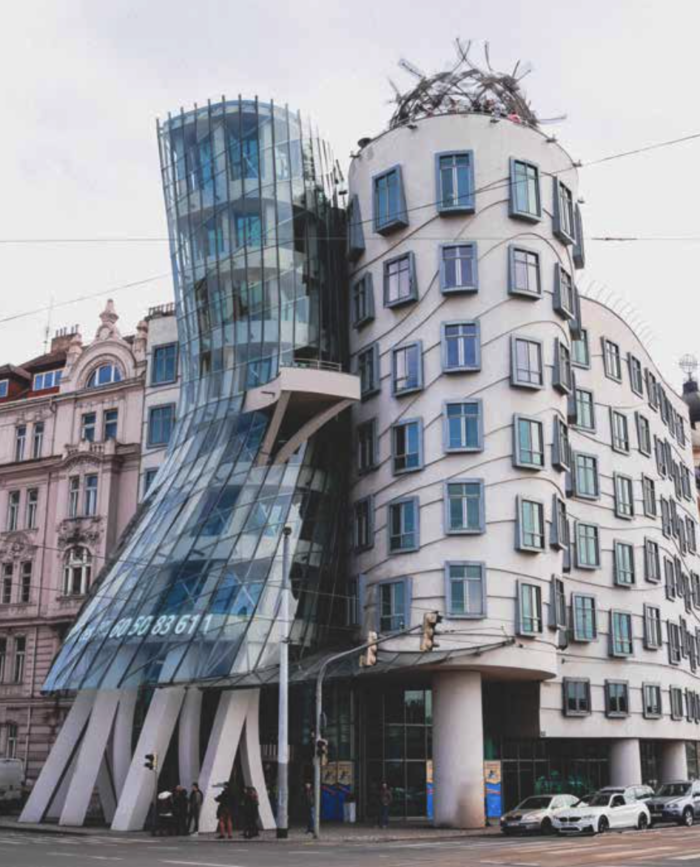Czechoslovakia was formed in 1918 at the end of the First World War from several provinces of the collapsing Austro-Hungarian empire.And, between the wars, it became the most prosperous and politically stable state in eastern Europe until it was occupied by Germany in 1938.
After the Second World War, Czechoslovakia was liberated by the Soviet Union and in 1948, the Communist Party formed a people’s republic which lasted until 1989. During this time, a push for democracy was sweeping through Eastern Europe and Czechoslovakia’s Communist leadership found itself confronted by mass demonstrations in Prague. They soon gave in to reforms and free elections were held in June 1990. Cracks began to show in the multiparty government fairly quickly though and in 1993 there was a peaceful decision made to dissolve Czechoslovakia into the two separate countries of Slovakia and the Czech Republic.
Principal Industries in the Czech Republic
The main industries in the Czech Republic are comprised of high-tech engineering, electronics and machine-building, steel production, and transportation equipment (automotive, rail and aerospace).
Other Important Industries
Banking, finance, insurance, tourism, and business services are the most important drivers of the Czech service sector. Services make up 60.8% of the country’s GDP. While the agriculture sector is not huge and only employs about 2.3% of the available labour force, they do have some specialties including wheat, potatoes, sugar, hops, pigs and poultry.
Doing Business in the Czech Republic
The Czech Republic is very welcoming to foreign investors but doing business in the country can be a troublesome task without having local help on board.
With a strategic location, educated workforce and competitive infrastructure, the Czech Republic has long been an appealing destination for overseas firms looking to grow in Central and Eastern Europe (CEE). It is one of the most successful CEE countries in terms of attracting foreign direct investment, with over 173,000 Czech firms across all sectors now supported by foreign capital.
Located close to Europe’s industrial backbone, the Czech Republic’s central location is considered the best choice for investments in transport and logistics because of its proximity to consumption and production zones. This, together with its EU membership, makes the country a perfect gateway to the European single market of 502 million consumers. Supporting this strategic location is one of the most advanced transport networks in CEE, which has been ranked among the world’s best in terms of transport-network density. This makes it an ideal supplier base and an excellent distribution centre.
The View from the Ground
When describing a country and its culture, you can write down all the facts and figures you like but if you want the full story, you need to get the perspective of someone with a lived experience of being there. That’s why we’ve asked Tomáš to give us his take on what it’s like to live and work in the Czech Republic.
We have pretty generic rules on meeting behaviour. It’s simply a case of being polite and open. We can be a little cold in the first meeting so it’s best if you know this. We don’t go in for that American “over-enthusiasm” so as long as everyone is on the same page, things should be fine. Assuming all goes well, you may even go for drinks after the first meeting or organise a business lunch and have some beers there. You can’t do this with everyone of course, but the business culture here is very open. Business lunches were quite common before the pandemic and there would be nothing unusual about suggesting you have the business meeting outside over a coffee. And, whoever makes the invitation does the paying. We’re not Germanic about timekeeping but if you’re going to be fifteen or more minutes late, it’s just polite to let others in the meeting know.
Relationships are a big part of Czech business. People want to do business with people they like so yeah, it’s definitely important. It’s also important if companies are moving here that they translate their marketing materials into Czech. If they are not prepared to do this, they will not be taken seriously. It’s important to properly prepare for entering the Czech market and it would be worthwhile to add someone local to your team. They will be able to guide you, show you what steps you need to take and could potentially make introductions to interested parties.
It is of course possible to enter the Czech market cold but if you try that approach, you will be making things much harder for yourself than is necessary. You could probably only really get away with it if you were already a very big and well-known name in the international market.
The tech scene in the Czech Republic is growing and there are even some government funding initiatives to keep things moving in the right direction. There is also an agency called Czech Invest who offers help and advice to growing companies in the Czech Republic. There are a lot of start-ups, and these generally begin in the university towns, but there are a few hubs around the country as well as technology centres in Prague and Brno. In fact, there’s some good innovation coming out of the Czech Republic at the moment. Just like the typical pattern, there are a lot of start-ups and then there are the ones that stand head and shoulders above the others. There’s one unicorn right now, called Rholik. They’re an e-grocery retailer that started here but have already scaled to Austria, Hungary and Germany with Romania, Italy and Spain to come.
Something I’ve noticed is that the technology solutions are developed in-house rather than the companies investing in a solution from outside. One of the craziest things that I’ve seen is an E-commerce shop that is super good. It sells cosmetics and the site is already translated into 17 languages. The owner decided that instead of purchasing technology for Human Capital Management, they started to create their own, which is totally out of the ordinary. This is the way some companies are doing it now though. The advantage is obviously that as everything is in-house within the company; you can customise the technology to your exact specifications.
Among the standout start-ups here, there are some great ones operating in cyber security and in machine monitoring. It’s difficult for a company to scale out of the Czech Republic though. If a German start-up becomes successful, it’s in a country with 80 million potential customers and so it can become established quite quickly before scaling to other large European countries. By contrast, we have only 10 million people so even if we are successful at home, it’s quite risky to go outside. Money alone would be a huge issue and you would need investors to support you.
There is a hierarchy in the Czech Republic but not all decisions are made at the C-level. Sometimes, decisions are made at a departmental level as they are the ones who will better understand what’s needed. The C-suite will probably have to sign off on it, but the department head will decide what solution is needed. As long as everything is going in the direction of the owner’s vision, then the hierarchy can be quite relaxed and only gets stricter when things aren’t going according to plan. For Aexus though, it’s best to approach companies at the C-level because they will know if certain plans are good to go or not and then we can continue working on meetings with the people who will be using the product day in and day out.
Our biggest rival is probably Slovakia. Certainly, they’re the ones we want to beat in football at the moment. We used to be one country, so now we’re like brothers who fight. We’re also quite competitive in tech with Slovakia. We’re saying that we have the German quality at the Czech price, so that’s how we compete with them on that level.
There aren’t any countries that we actively dislike although we do like to joke that we hate everyone equally. I’d say that we’re a little bit jealous of Germany because we see that they get paid a lot more for the same work. The Polish can be a little difficult to deal with. We don’t see them on the same quality level as us and in meetings they will try to drive the price down, which sometimes causes an issue.
Going back to Germany quickly, we had a lot of connections with the Germans before the Second World War. There were a lot of German industrialists here and we were exporting power plants from the end of 19th century. So, the technology was here, and the engineers are really proud about the technology they were building in the Czech Republic. So, even though we were exporting technology to the likes of Poland and Hungary so they could produce things, we don’t see them as technologically advanced nations. That’s why we don’t really see them as competitors because we are trying to compete with the German products in the German market. We like the USA as well and would like to enter that market, but we need to reach their level consistently to be successful there.
A strange thing about the Czechs is that we are friendlier to foreigners than to our own citizens but it’s not easy to strike up a big friendship right away. Not all the people here are open and as I said before, we can come across as a bit cold. But, when it’s at a business level, people here like to talk to foreigners and make friendships with them. You know, when you work for a company, you get to know your colleagues, foreign or not and after work it wouldn’t be unusual to go for a beer together. We don’t totally separate work and home life either. Not like the Germans. They have a strict, this is work life, this is home life policy. We’re a little more mixed. For example, if you were having a family barbecue, you may still invite some people from work. And why not, because if there’s a birthday at the office, we celebrate that. If somebody has a kid, we’ll celebrate that with colleagues.
On top of this, we like to have a good laugh in the office. The Czechs are the masters of sarcasm. We have elevated it to an art form. So, we’ll be in the office all day and sooner or later the sarcastic remarks will start. No one is safe either, we all do it to each other, so it’s all done in good humour, it’s not like anyone gets picked on. To people watching this from the outside, it can look like we are being mean to each other but we’re not, we’re just having fun.
Lastly, the most Czech thing you can ever say is, “let’s go for a beer”. It doesn’t matter what topic you’re talking about or where the conversation is going, sooner or later someone’s going to say, “let’s go for a beer and discuss it”. Then, there is a general nod of agreement from the group and off you go. So, now you know what to say when you’re in the Czech Republic. And, don’t worry if you don’t speak Czech, they’ll still know what you mean, even if you say it in English.
Business Etiquette
Czechs are non-confrontational and often take an indirect approach to business dealings. In negotiation,Czechsgenerally offer what they expect to get and do not often give counteroffers. Business is conducted slowly. You will have to be patient and not appear ruffled by the strict adherence to protocol.





